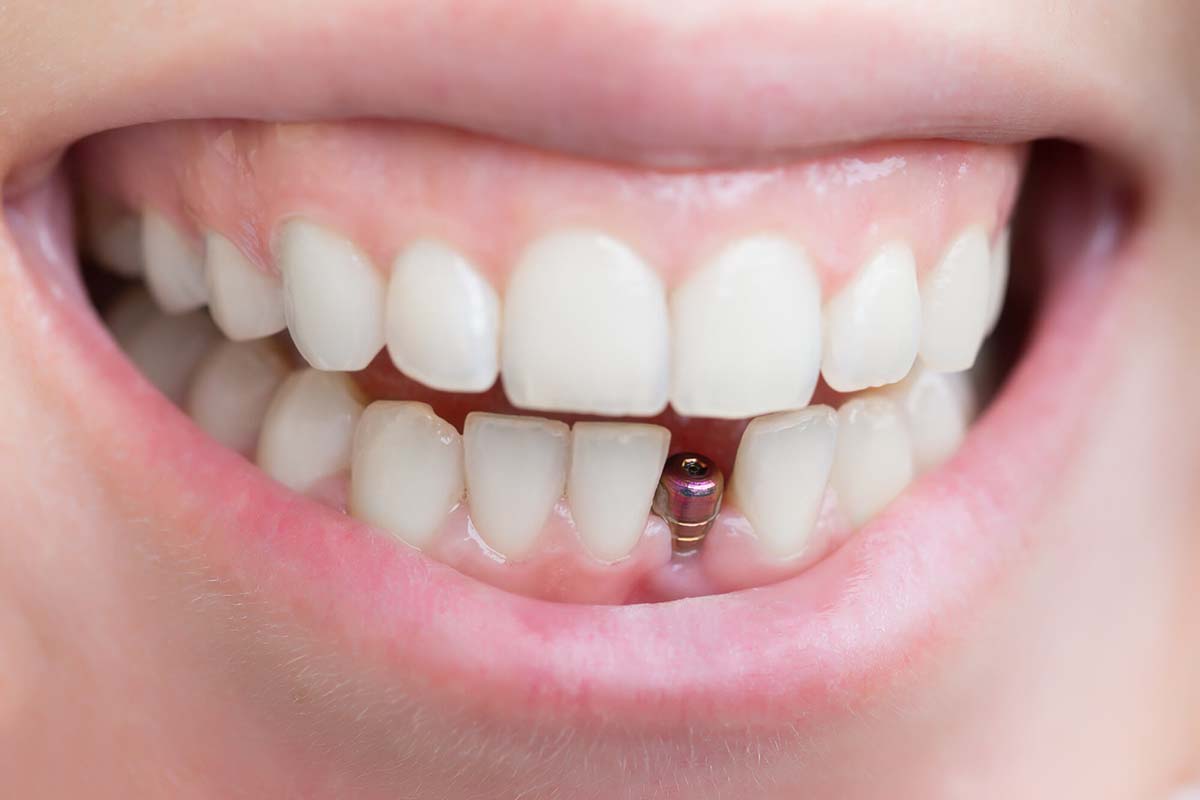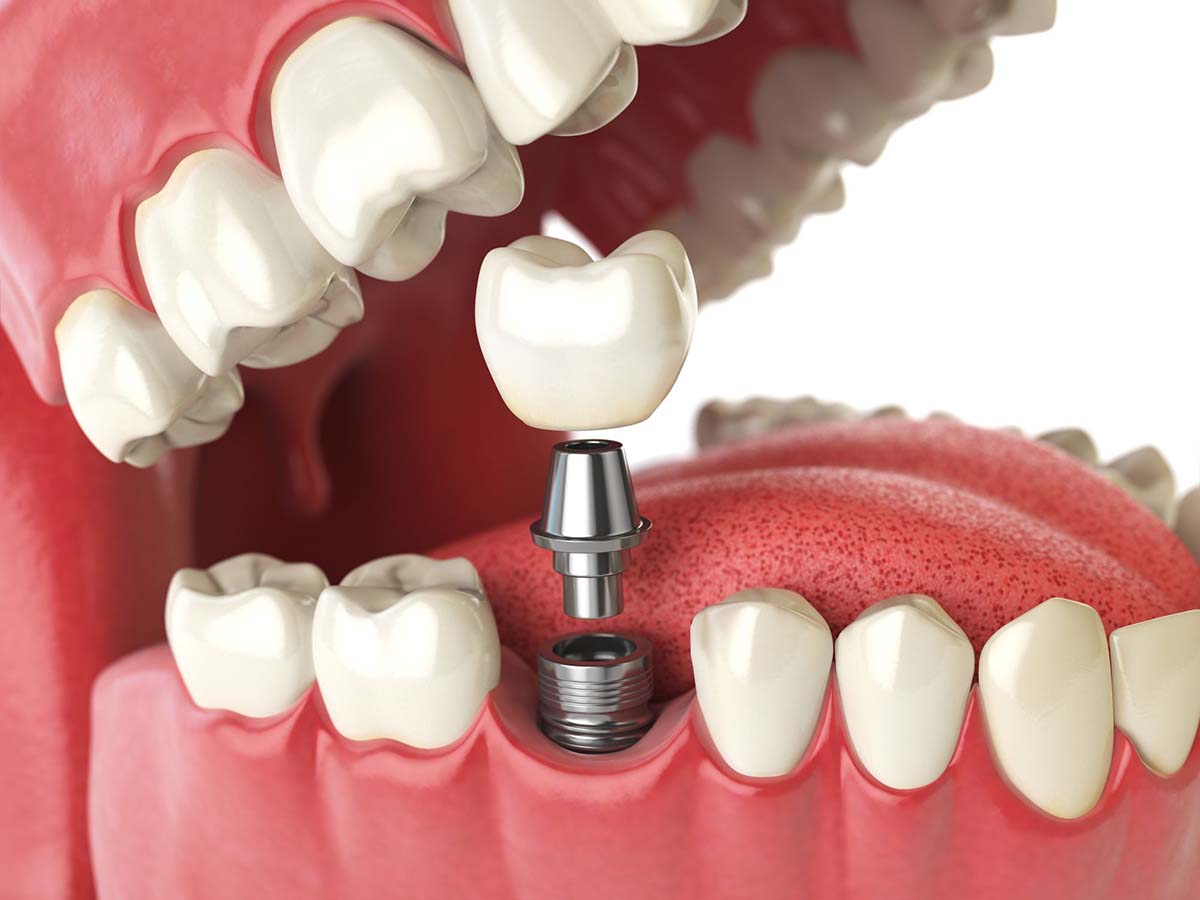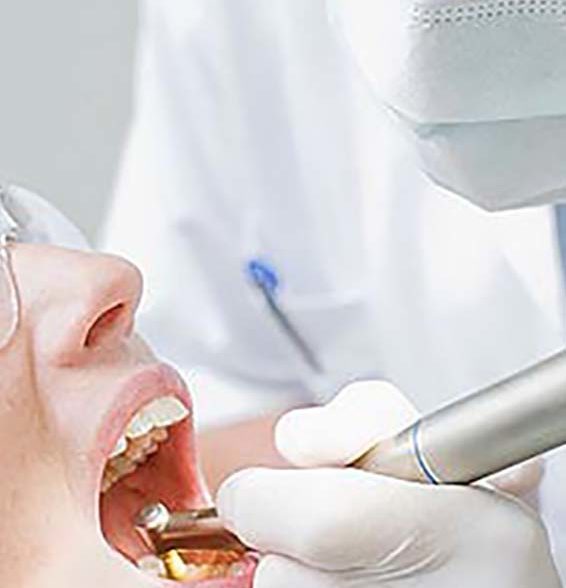Where to find cosmetic dentists - Dental Implants Stoke-on-Trent
Regardless of enhancements in dental care in Stoke-on-Trent, countless people suffer the loss of teeth-- primarily due to tooth decay, periodontal illness, or injury. For several years, the only treatment alternatives readily available for individuals with missing out on teeth were bridges and dentures across West Midlands. But, today, dental implants are readily available. Dental implants are replacement teh basis of replacement teeth. There are numerous benefits to dental implants, including: Improved appearance. Dental implants feel and look like your own teeth. And because they are designed to fuse with bone, they end up being long-term. Enhanced speech. With unreliable fitting dentures, the teeth can slip within the mouth making you to slur your speech.



What We Do For Stoke-on-Trent Replacing Missing Teeth with Dental Implants
Enhanced comfort. Because they end up being part of you, implants eliminate the pain of removable dentures. Easier eating. Moving dentures can make chewing hard. Dental implants function like your own teeth, allowing you to eat your preferred foods with self-confidence and without discomfort. Enhanced self-esteem. Dental implants can provide you back your smile and help you feel much better about yourself. Dental implants don't require decreasing other teeth, as a tooth-supported bridge does. Because close-by teeth are not modified to support the implant, more of your own teeth are left undamaged, improving long-term oral health. Private implants also allow simpler access between teeth, improving oral health. Durability. Implants are extremely resilient and will last several years. Convenience. Removable dentures are just that; removable. Dental implants eliminate the embarrassing trouble of removing dentures, as well as the requirement for unpleasant adhesives to keep them in place. Success rates of dental implants vary, depending upon where in the jaw the implants are placed however, in general, dental implants have a success rate of approximately 98%.

Dental Implants available across West Midlands including Hanley, The Potteries, Joiners Square, Northwood, Shelton, Etruria, Berry Hill, Cobridge, Cliff Vale, Birches Head

Impactfuly Transform Your Smile in Stoke-on-Trent
Embed Possession Override Most of the times, anybody healthy adequate to undergo a regular dental extraction or oral surgery can be thought about for a dental implant in Stoke-on-Trent, West Midlands. Patients must have healthy gums and adequate bone to hold the implant. They also must be devoted to great oral health and regular dental visits. If you are considering implants, speak to your dentist to see if they are best for you. In general, dental implants are not covered by dental insurance at this time. Protection under your medical plan might be possible, depending upon the insurance plan and/or cause of tooth loss. Detailed questions about your individual requirements and how they relate to insurance must be discussed with your dentist and insurance service provider. The plan addresses your particular requirements and is prepared by a group of experts who are specifically trained and experienced in oral surgery and restorative dentistry. This group method supplies collaborated care based upon the implant alternative that is best for you. Next, the tooth root implant, which is a little post made of titanium, is placed into the bone socket of the missing out on tooth. The healing process can draw from 6 to 12 weeks for Stoke-on-Trent residents. Embed Possession Override Once the implant has actually bonded to the jawbone, a little connector post-- called an abutment-- is attached to the post to securely hold the new tooth. To make the new tooth or teeth, your dentist makes impressions of your teeth, and produces a model of your bite (which catches all of your teeth, their type, and arrangement).
- Allows you to bite and chew naturally
- Makes you feel more attractive
- Provides a permanent solution for missing teeth
| Treatments | Price |
|---|---|
|
Consultation |
FREE |
|
Dental Implants |
Cash & Finance options available |
A replacement tooth, called a crown, is then attached to the abutment. Instead of one or more individual crowns, some patients might have accessories put on the implant that maintain and support a removable denture. Your dentist also will match the color of the new teeth to your natural teeth.
Most individuals who have actually received dental implants say that there is extremely little pain involved in the procedure. Local anesthesia can be utilized during the procedure, and most patients report that implants include less discomfort than a tooth extraction. Embed Possession Override After the dental implant, moderate discomfort can be treated with over-the-counter discomfort medications, such as Tylenol or Motrin.
Dental implants are metal posts or frames that are surgically positioned into the jawbone below your gums. When in place, they allow your dentist to mount replacement teeth onto them. Because implants fuse to your jawbone, they supply stable support for artificial teeth. Dentures and bridges installed to implants will not slip or move in your mouth a specifically important benefit when eating and speaking.
For some individuals, ordinary bridges and dentures are just not comfortable or perhaps possible, due to aching spots, poor ridges or gagging. In addition, ordinary bridges must be attached to teeth on either side of the space left by the missing out on tooth. An advantage of implants is that no nearby teeth require to be prepared or ground down to hold your new replacement tooth/teeth in place.
You must also dedicate to keeping these structures healthy. Precise oral health and regular dental visits are vital to the long-term success of dental implants. Implants are normally more expensive than other techniques of tooth replacement, and most insurance providers usually cover less than 10 percent of the costs. The American Dental Association thinks about 2 kinds of implants to be safe.
When the surrounding gum tissue has actually recovered, a second surgery is required to link a post to the original implant. Finally, an artificial tooth (or teeth) is attached to the post-individually, or grouped on a bridge or denture. Subperiosteal implants these consist of a metal frame that is fitted onto the jawbone just below the gum tissue.
Posts, which are attached to the frame, protrude through the gums. Similar to endosteal implants, artificial teeth are then installed to the posts.
A dental implant is utilized to support one or more incorrect teeth. It is a titanium screw that can replace the root of a tooth when it fails. Much like a tooth root, it is placed into the jawbone. Implants are a safe, well-established treatment. It’s most likely true to say that implants, much like natural teeth, will last for as long as you care for them.
If you don’t care for your implants they will establish a covering similar to what you get on ignored natural teeth. Left unattended, this can result in gum infection, bleeding, discomfort and general pain. You could get all these issues with natural teeth. If your implants are well looked after, and if the bone they are fitted to is strong and healthy, you can anticipate them to last for several years.
Yes. You can have any number of teeth replaced with implants – from one single tooth to a total set. It depends on the condition of the bone in your jaw. Your dentist will schedule a number of unique tests to discover the amount of bone still there.
Positioning an implant is often simpler than taking a tooth out and is normally done using a simple regional anaesthetic. You will not feel any discomfort at the time however, just like after an extraction, you might feel some pain during the week after the surgery. Often your dentist may provide you a sedative if you are extremely worried or if the case is a complicated one.
How to find qualified dentists for Dental Implants Stoke-on-Trent, West Midlands
Regardless of enhancements in dental care, countless Americans suffer tooth loss– primarily due to tooth decay, periodontal illness, or injury. For several years, the only treatment alternatives readily available for individuals with missing out on teeth were bridges and dentures. But, today, dental implants are readily available. Dental implants are replacement tooth roots.There are numerous benefits to dental implants, including: Improved appearance. Dental implants feel and look like your own teeth. And because they are designed to fuse with bone, they end up being long-term. Enhanced speech. With poor-fitting dentures, the teeth can slip within the mouth triggering you to mumble or slur your words. Enhanced comfort. Because they end up being part of you, implants eliminate the pain of removable dentures. Easier eating. Moving dentures can make chewing hard. Dental implants function like your own teeth, allowing you to eat your preferred foods with self-confidence and without discomfort. Enhanced self-esteem. Dental implants can provide you back your smile and help you feel much better about yourself. Dental implants don’t require decreasing other teeth, as a tooth-supported bridge does. Because close-by teeth are not modified to support the implant, more of your own teeth are left undamaged, improving long-term oral health. Private implants also allow simpler access between teeth, improving oral health. Durability. Implants are extremely resilient and will last several years.
Stoke-on-Trent Trusted Dental Implants
 The hidden truths about Dental Implants
The hidden truths about Dental ImplantsConvenience. Removable dentures are just that; removable. Dental implants eliminate the embarrassing trouble of removing dentures, as well as the requirement for unpleasant adhesives to keep them in place. Success rates of dental implants vary, depending upon where in the jaw the implants are placed however, in general, dental implants have a success rate of approximately 98%. Embed Possession Override Most of the times, anybody healthy adequate to undergo a regular dental extraction or oral surgery can be thought about for a dental implant. Patients must have healthy gums and adequate bone to hold the implant. They also must be devoted to great oral health and regular dental visits. If you are considering implants, speak to your dentist to see if they are best for you. In general, dental implants are not covered by dental insurance at this time. Protection under your medical plan might be possible, depending upon the insurance plan and/or cause of tooth loss. Detailed questions about your individual requirements and how they relate to insurance must be discussed with your dentist and insurance service provider. The plan addresses your particular requirements and is prepared by a group of experts who are specifically trained and experienced in oral surgery and restorative dentistry. This group method supplies collaborated care based upon the implant alternative that is best for you. Next, the tooth root implant, which is a little post made of titanium, is placed into the bone socket of the missing out on tooth.
 The hidden truths about Dental Implants
The hidden truths about Dental Implants
 The hidden truths about Dental Implants
The hidden truths about Dental ImplantsA replacement tooth, called a crown, is then attached to the abutment. Instead of one or more individual crowns, some patients might have accessories put on the implant that maintain and support a removable denture. Your dentist also will match the color of the new teeth to your natural teeth. Most individuals who have actually received dental implants say that there is extremely little pain involved in the procedure. Local anesthesia can be utilized during the procedure, and most patients report that implants include less discomfort than a tooth extraction. Embed Possession Override After the dental implant, moderate discomfort can be treated with over-the-counter discomfort medications, such as Tylenol or Motrin. Dental implants are metal posts or frames that are surgically positioned into the jawbone below your gums. When in place, they allow your dentist to mount replacement teeth onto them. Because implants fuse to your jawbone, they supply stable support for artificial teeth. Dentures and bridges installed to implants will not slip or move in your mouth a specifically important benefit when eating and speaking.
